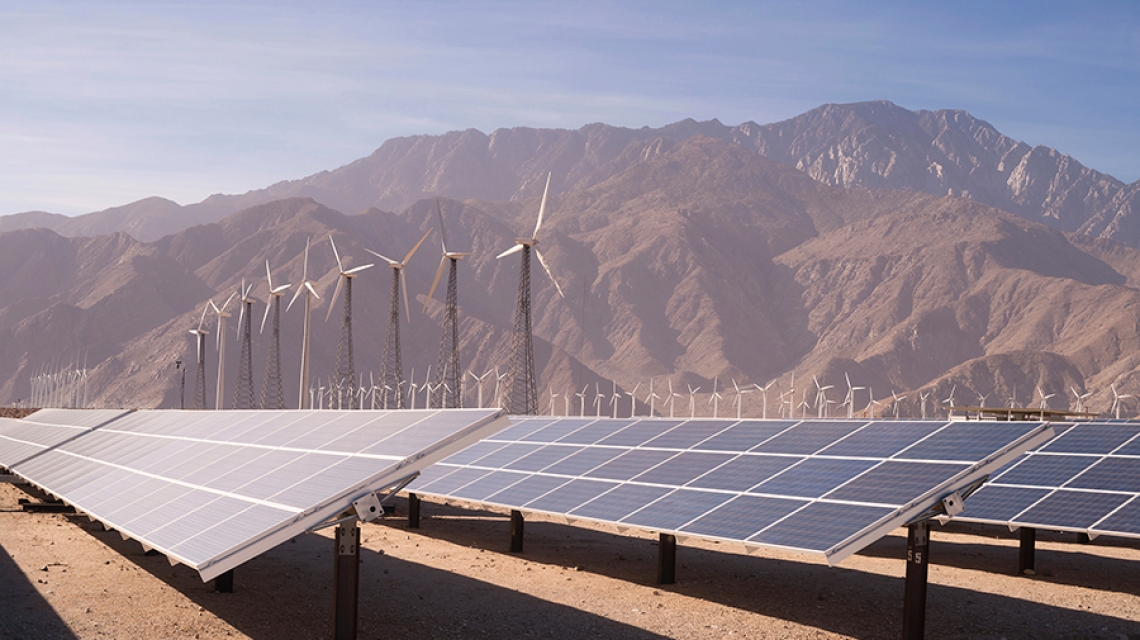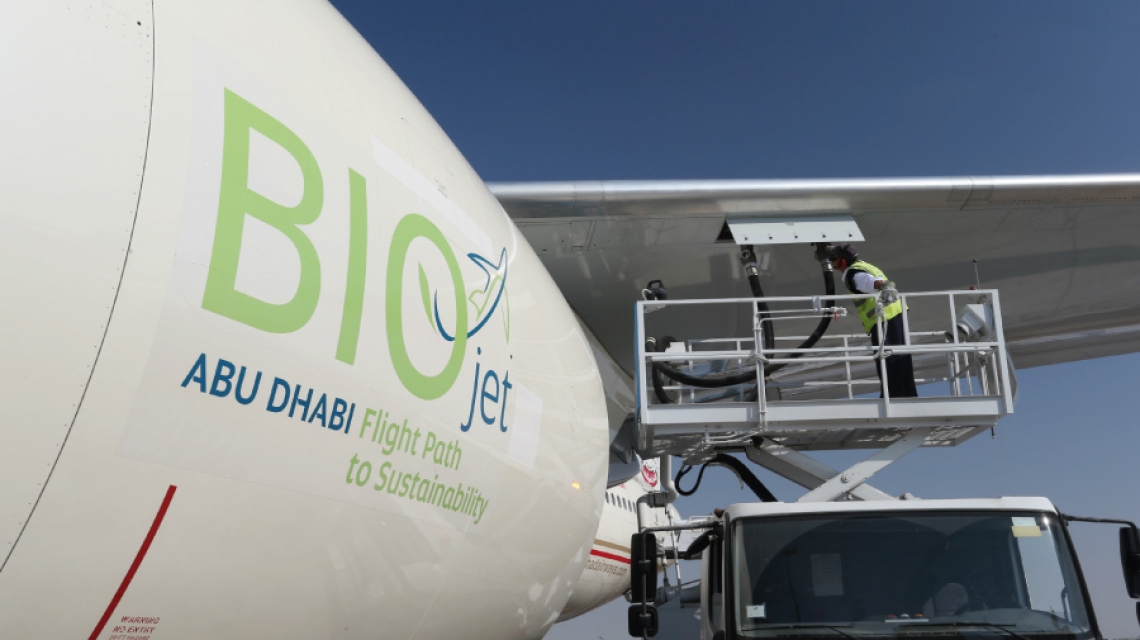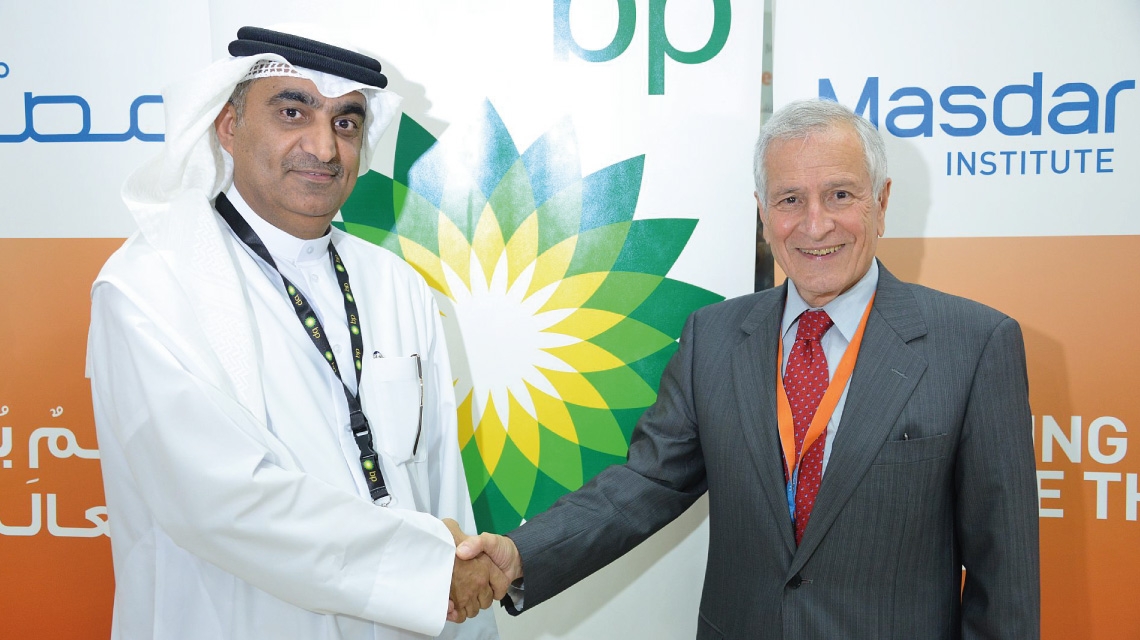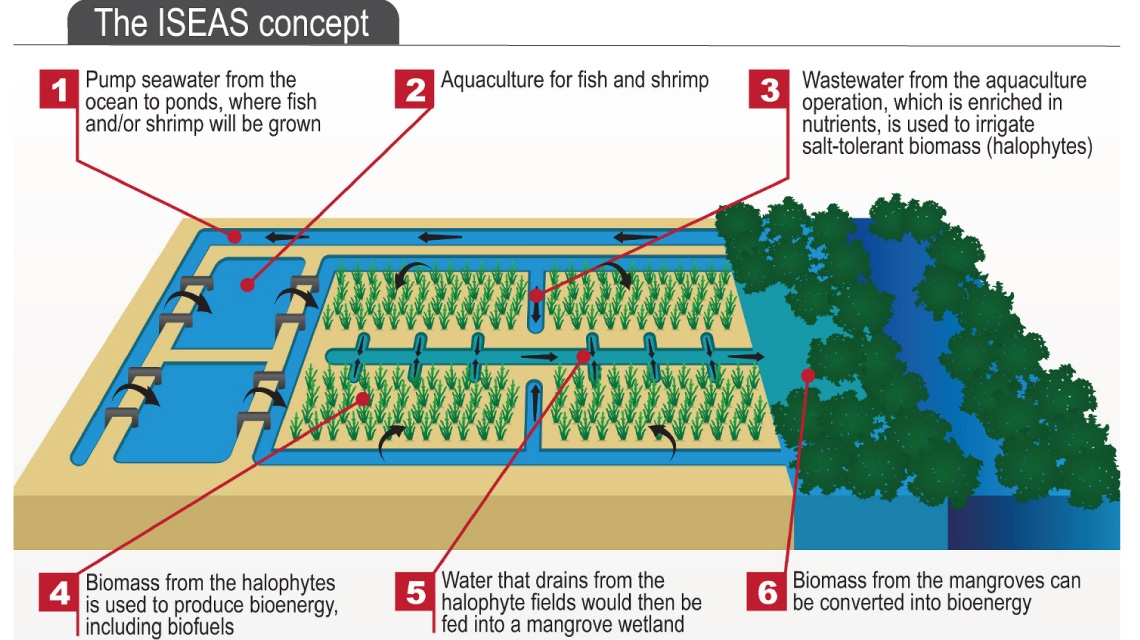
The energy landscape of the Middle East and North Africa (MENA) region is undergoing a significant transformation as a result of intersecting technological, economic and political trends that are both regional and international. This transformation, which is placing pressure on regional resources and energy systems, has stimulated the need for a fresh look at regional energy policies with consideration of their impact on social, political and economic sustainability, Masdar Institute’s Dr. Steve Griffiths, Vice President for Research and Interim Associate Provost has highlighted in a recent research paper.
The paper will be published in the March 2017 issue of the international journal Energy Policy and is currently available online through ScienceDirect. In the paper, which is titled “A review and assessment of energy policy in the Middle East and North Africa region”, Dr. Griffiths provides a critical review and assessment of energy policy in the MENA region, with emphasis on the key policy considerations required for the region’s energy system to achieve increasing levels of sustainability.
“The paper examines the regional and global factors that influence MENA energy policies, including critical uncertainties – such as geopolitical and socioeconomic dynamics, the energy-water nexus, and regional energy interconnections – and action priorities – such as energy subsidies, renewable energy development and energy pricing,” explained Dr. Griffiths.
He explores how the impact of global factors, like volatility in the oil and gas markets, the emergence of a global commitment to reducing greenhouse gas emissions, and the evolution of renewable energy as a cost-competitive energy source, have worked to support investment for further scale-up and integration of renewables into energy systems across the MENA region.
Similarly, regional factors, including the issue of water scarcity and the interdependence between freshwater production and energy consumption, which necessitate the coupling of water and energy policy, highlight the need for all countries in the region to emphasize demand management and alternative, low-carbon energy sources in their energy strategies and policies.
“Considering the MENA region context is imperative to understanding the timeline and potential for MENA countries to evolve and transition their energy systems,” Dr. Griffiths commented.
While remaining cognizant of the political, economic and social context of the MENA region, Dr. Griffiths explores the potential role that policy changes in the areas of energy efficiency standards, energy subsidies, energy supply diversification and inter-regional electricity integration could play in achieving a successful energy transition that would enable sustainable development and a decoupling of economic growth and energy consumption.
He explains that while many of the MENA countries are focused on energy supply diversification, including from renewable sources like the sun, wind and nuclear energy, which is demonstrated by the establishment of renewable energy targets, clear progression from political visions to strategic plans to roadmaps tied to policies and regulations is absent in all but a select few MENA countries.
Noting the need for regional policies and regulations supportive of renewable energy deployment, Dr. Griffiths cites those policies that are most commonly used, stating: “The most widely implemented renewable energy policy framework in the MENA region is tendering, but additional policy measures, such as net metering, will be needed for greater private sector engagement in the deployment of distributed renewable energy systems, like rooftop solar PV.”
Dr. Griffiths also sheds light on the need for MENA countries to develop and implement energy efficiency standards beyond the building sector to include the transportation and industrial sectors. These sectors make up 51% of energy consumption in Levant countries, 56% in North African countries and 69% in GCC countries. Currently, however, no MENA country has a comprehensive policy for transportation efficiency and no GCC country has clear policies and regulations to drive energy efficiency in its industrial sector.
Energy subsidy reform and regional energy trade, including electricity interconnection, are key policy development areas that Dr. Griffiths highlights as having strategic potential for enabling economic development without increasing regional energy consumption. In his report, Dr. Griffiths cites findings that suggest an interconnected GCC electricity market could yield more than US$23 billion in economic benefits by 2028 via reduction in fuel, operation and maintenance costs while providing additional savings of more than US$5 billion in power generation capacity and abating as much as 225 million tons of regional carbon dioxide emissions.
In conclusion, Dr. Griffiths notes the MENA region’s future energy transition is dependent on the development of key policy frameworks that promote energy efficiency standards, demand management and interconnected markets.
“Although hydrocarbon exploration and production is poised to continue to play an important role in the region’s energy systems in coming years, policies that place an emphasis on regional energy trade, demand management, energy efficiency and clean energy production can contribute to benefits such as lower energy prices, enhanced sustainability, and lower air pollution and greenhouse gas emissions,” he said.
Dr. Griffith’s paper was published as one of a series of requested papers for Energy Policy focused on national and regional policies with contributions covering the United States, Canada, the United Kingdom, Denmark, China, Japan, Association of Southeast Asian Nations (ASEAN), and Australia. He was personally invited to prepare a paper on the MENA region by the journal’s editor, Professor Michael Jefferson of the ESCP Europe Business School.
Commenting on the paper, Professor Jefferson said: “I have long had a personal interest in the Gulf, so I had a strong wish to see Dr. Griffiths’ paper come to fruition. He has produced an excellent assessment of the challenges the region faces as efforts continue to achieve a global transition to alternative forms of energy while heavy dependence on oil and gas products continues for some decades to come. It is our hope and expectation that Dr. Griffiths’ paper will improve understanding of the region, the challenges it faces, and the desirability of fuller cooperation between its member states and peoples.”
The publication of this comprehensive assessment of MENA-wide energy policies is quite timely. With Abu Dhabi Sustainability Week (ADSW) – the largest gathering of sustainability and clean energy leaders in the region – scheduled to take place later this month in Abu Dhabi, Dr. Griffith’s paper will stimulate well-informed discussions of the potential strategies, technologies, and policies needed to achieve sustainable development across the region.
Erica Solomon
News and Features Writer
10 January 2017






